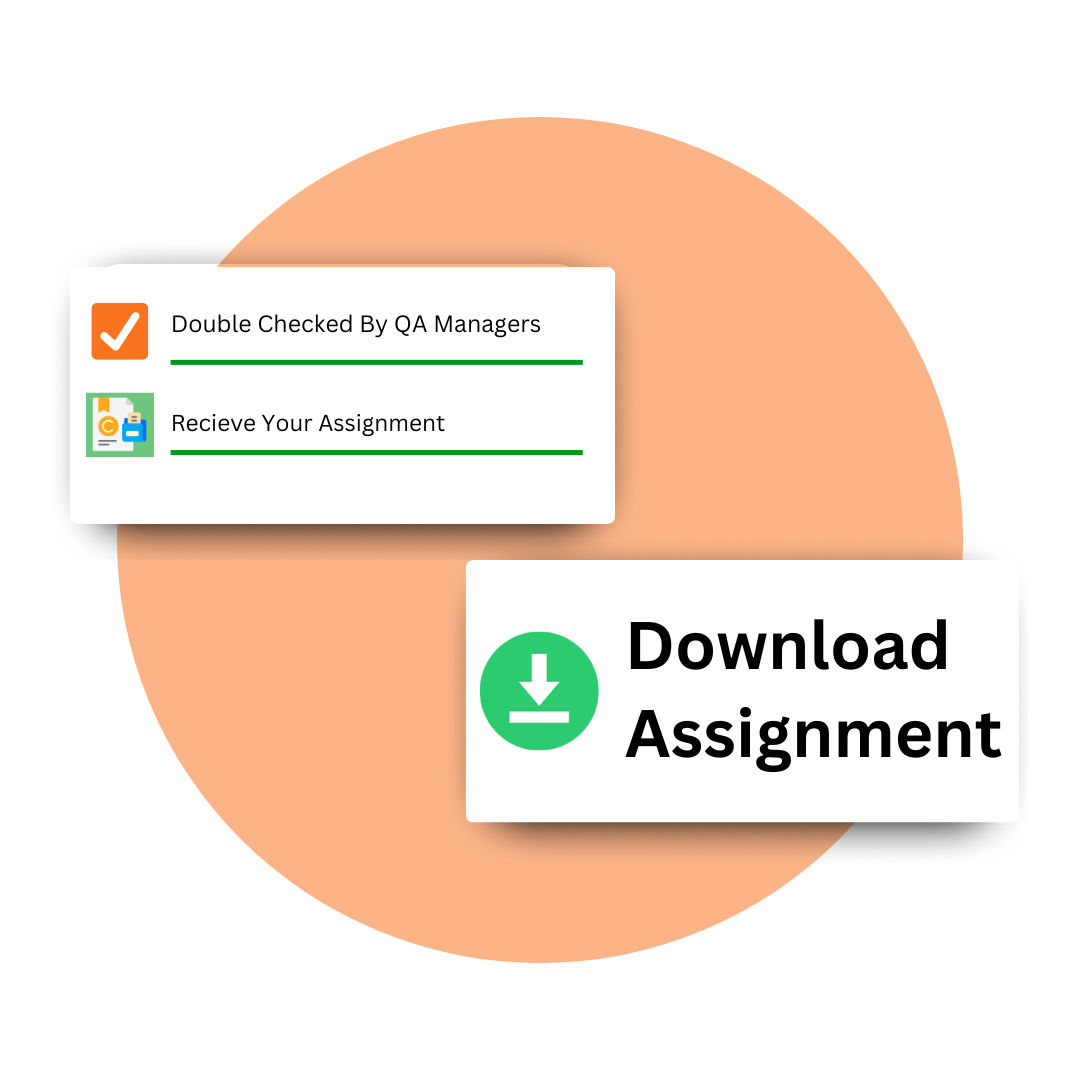The hassle-free process to hire a professional writer for ILM level 3 8600-314 assignment.

Provide us with the instructions for your assignments, like topic, deadline, number of pages, or any specific details that are required in your assignment solution.

Once we receive your order, your assignment will be handled by an expert in a related field who will provide you with a quote based on your urgency and word count. If you are satisfied, proceed with the transaction with our secured payment gateway.

Our writer will work on your assignment and will finish it before the deadline and send you a draft copy so you can check it and ask for revisions if needed without any extra charges; once you are satisfied, we will ask you to download the assignment through the portal.
Our writers work hard on your assignment so you can be assured of high grades after your submission. With extensive knowledge of ILM units, our experts will complete the assignment tailored just for you.
Stuck on a tight deadline? Our team is dedicated to providing you with the best assignment for understanding the effective teamwork unit of ILM before the given submission date.
Our writers are master's degree holders from the UK and are well-informed about the rules and guidelines of UK universities, so you can count on our British writers with your assignments. And be stress-free of any academic concerns.
No matter what the time is! Our customer support will help you whenever you want and will provide the best solution for any query as soon as possible.
At ilmassignmenthelp.co.uk, your assignments will be done by our ILM-certified British writers, giving you the advantage of expert knowledge and high-quality assignments that will be customised as per your needs, following the rules and guidelines of UK universities. Our assignments are always AI-free and plagiarism-free, so our customers shall not face any problems after submission. Contact us today and get your ILM Level 3 8600-314 assignment done before the deadline.
Check out the assignment sample we have provided for you below and get custom assignment answers at an affordable price now!
The disciplinary procedure at work must follow criteria given by the law so that fairness and transparency exist in the case, and it is according to the employment legislation. The main legal aspects include:
Employment Law Compliance: All disciplinary proceedings shall be within the limitations of the employment laws and follow the law established by the Employment Rights Act 1996: the protection of employees from unfair treatment. Any action conducted on disciplinary measures must not contradict the rights of an employee.
Fairness and Reasonableness: Disciplinary proceedings should be carried out with fairness and reasonableness. Employees must be notified as to the substance of the complaint and given the opportunity to explain their side of things before such a procedure.
Right to Representation: Employees have a statutory right to have a member of staff or a trade union representative present with them at any formal disciplinary procedure.
Consistency in Enforcement: Disciplinary measures adopted must provide non-discrimination so that no employee suffers in the tribunal. All workers must be handled in the same way for all circumstances.
Protection on Dismissal: Workers must first be provided a chance at improvement through transparent communications and help before dismissal, whereas disciplinary processes may result in dismissal.
Employment policies and procedures in a company indicate the clear standards that managers are entitled to in order to address disciplinary concerns in their jobs equitably and methodically. These policies generally contain the following:
Code of Conduct: This specifies the expectations and standards for employee conduct. It can assist managers in assessing acceptable and unacceptable conduct and whether to take disciplinary action.
Disciplinary Procedure: A written system defining for managers the procedures to take when dealing with disciplinary concerns, such as informal warnings, formal warnings, suspension, and dismissal. These must comply with employment laws and comply with company values.
Grievance Procedure: This policy, therefore, offers a mechanism wherein workers may vent their concerns if they believe that they are being placed unjustly within the disciplinary procedure. It thus stipulates that personnel can appeal against disciplinary measures they perceive and think are unjust.
Equal Opportunities Policy: This policy assures that no staff member encounters discriminatory disciplinary proceedings and goes on to explain that no discipline will be carried out discriminatorily since the concept of equality is preserved and the procedure does not seek to discriminate.
Performance Improvement Plans (PIP): Such a policy might assist in defining how improvement could be supported with training, coaching, or greater resources ahead of any disciplinary action since an employee’s performance is a cause for it.
Disciplinary processes serve a range of crucial tasks in the workplace:
To Observe Order: A complete disciplinary procedure helps observe order and serves to make all workers aware of the standards and expectations established for behaviour and performance.
To Deal with Misconduct: Disciplinary procedures give an organised technique to dealing with incidents of employee misconduct, ensuring there is always a defined path set for resolving violations and stopping subsequent concerns.
To justice and uniformity: The processes ensure justice and uniformity when disciplinary sanctions are imposed throughout the company. In that way, they limit the risks of prejudice or even favouritism.
To secure the organisation and employees: Following formal processes helps the company to secure its potential for legal action, while at the same time offering an employee an opportunity to express themselves and amend mistakes even before a severe penalty is brought in.
To Develop Performance: Disciplinary processes assist the person uncover weak spots of performance, allowing employees to learn how to improve. This could be true for the person as well as for the business.
Managers have to critically monitor discipline, among other needs, to ensure a healthy work environment. Here are some interpersonal behaviours and support abilities that are essential for supervisors dealing with disciplinary issues:
Effective Communication Skills: Managers must be able to communicate effectively and empathetically, clarify the issue at hand, and listen to the employee’s side of the story. Open communication helps develop trust and ensures that employees understand the reasons behind disciplinary actions.
Active Listening: Management actively listens to the employee’s issues and opinions. Active listening opens a method for increasing awareness of the issues and demonstrates management’s eagerness to comprehend the employee’s viewpoint.
Conflict Resolution abilities: Managers must acquire abilities in conflict resolution for addressing conflicts occurring in the process of disciplinary discussion. A solution must always be sought, not an aggravation of the disagreement, to bring the situation back into harmony in the workplace.
Empathy and support: The boss, while retaining control over the employee, should empathise with him. This sense of understanding and support, say by giving performance development resources, inspires staff to accomplish better and feel appreciated.
Objectivity and Fairness: The staff manager is obliged to be objective; he should not demonstrate favouritism. He should manage every member of the workforce equally and according to the guidelines of corporate policy. Fairness avoids discrimination cases and ensures that the procedure is clear and fair.
Constructive criticism and coaching: Engage the management to offer constructive comments as well as assist the employee on how to improve further. This may also involve establishing defined goals with clear quantifiable achievement expectations for the employee, tracking progress steps towards attaining these goals, and therefore contributing to a suitable attitude towards discipline.
Experience the success of students who take our ILM assignment help.
A
Alex Turner

ILM Assignment Helper played a key role in my success with ILM Level 3 assignments. Their team offered exceptional insights, guidance, and support. They ensured I understood the core concepts and applied them in my coursework, resulting in fantastic grades and a more solid grasp of leadership principles.
M
Michael Thompson

ILM Assignment Helper delivered high-quality work for my ILM Level 7 assignments. Their expert writers incorporated advanced research and real-world examples that directly aligned with my academic needs. With their support, I achieved excellent grades and was able to apply the knowledge practically in my career.
E
Emma Green

I couldn’t have asked for better help with my ILM Level 3 assignments. ILM Assignment Helper’s team provided clear, concise, and well-researched content that directly addressed the challenges in my coursework. With their help, I improved my grades significantly and gained a clearer understanding of leadership principles.
D
Daniel Hughes

I was having difficulty understanding some of the more complex management theories in my ILM Level 5 course. The team at ILM Assignment Helper provided tailored support that helped me break down these concepts into easily digestible pieces. Their research and writing assistance improved my work quality and led to top grades in my assignments.
C
Charlotte Roberts

ILM Assignment Helper was a lifesaver during my ILM Level 7 course. Their expert writers not only provided high-quality, well-researched content but also made sure the assignments aligned perfectly with the requirements of my curriculum. Thanks to their assistance, I passed with distinction and gained insights that will benefit me in my career.
J
James Carter

I was struggling to understand the practical application of leadership theories in my ILM Level 3 assignments, but ILM Assignment Helper made everything clear. The team’s input was invaluable, helping me complete my work with a deep understanding of how these theories apply to real-life situations. I received excellent grades thanks to their support.
Place your order today and get high-quality assignments delivered right on time!
